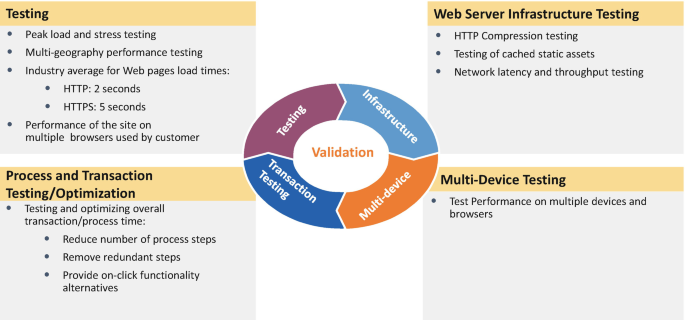Unveiling the Secrets of Ghosted Domains
Explore the intriguing world of expired domains and online opportunities.
Fasten Your Site’s Seatbelt: A Journey Through Web Performance Optimization
Buckle up for the ultimate guide to web performance optimization and boost your site’s speed and user experience like never before!
Understanding the Core Principles of Web Performance Optimization
Understanding the core principles of web performance optimization is essential for any website owner or developer aiming to enhance user experience and search engine rankings. One of the foundational concepts is loading speed. A fast website not only retains visitors but also performs better in search engine results. Studies have shown that even a one-second delay in loading time can lead to a significant drop in conversion rates. Therefore, employing techniques such as minification of CSS and JavaScript files, utilizing browser caching, and optimizing images can dramatically improve loading times.
Another crucial principle is the effective use of content delivery networks (CDNs). CDNs distribute your content across various geographical locations, ensuring that users receive data from the server closest to them, resulting in faster load times. Moreover, understanding the importance of lazy loading for images and videos can also optimize performance by loading these elements only when they come into the user's viewport. By focusing on these core principles of web performance optimization, website owners can create a more efficient and pleasant browsing experience for their audience.

6 Essential Tools for Monitoring Your Site's Performance
Monitoring your site's performance is crucial for ensuring a smooth user experience and optimizing search engine rankings. Here are 6 essential tools that can help you keep track of key metrics and improve your website's performance:
- Google Analytics – This tool provides in-depth insights into your website traffic, user behavior, and conversion rates.
- Google Search Console – This is essential for monitoring your site's presence in Google search results and allows you to identify issues affecting your site's performance.
- GTmetrix – Utilize GTmetrix to analyze your website’s speed performance, giving you detailed reports on loading times and recommendations for improvement.
In addition to these powerful tools, consider incorporating:
- Pingdom – It helps monitor your site’s uptime and performance from various locations around the world.
- Ahrefs – Known primarily for its SEO capabilities, Ahrefs also provides robust tools for tracking your site's performance metrics.
- WebPageTest – This tool offers advanced testing and optimization suggestions based on your site’s performance metrics.
By utilizing these 6 essential tools, you can gain valuable insights and make informed decisions to enhance your site's performance effectively.
Is Your Website Speeding Away? Common Performance Bottlenecks and How to Fix Them
Is your website speed suffering from performance bottlenecks? Understanding the common issues that can drag down your site's loading times is crucial for maintaining an optimal user experience and improving your search engine rankings. Performance bottlenecks often stem from several factors, such as large image files, excessive use of plugins, or inefficient code. For instance, images should be properly compressed and resized before uploading them to your site, as oversized files can significantly slow down page loading times. Additionally, regularly auditing your plugins and removing any that are not essential can help streamline your website's performance.
Another common culprit behind slow website speeds is poor server performance. If your hosting provider cannot handle the traffic your site receives, it may lead to slow response times. Consider upgrading to a better hosting plan or switching to a more reliable provider to ensure your site can handle visitor load efficiently. Finally, implementing caching solutions, such as browser caching or server-side caching, can dramatically improve load times by storing static versions of your pages. Addressing these performance bottlenecks is vital to keeping your website running smoothly and efficiently, ensuring your users stay engaged and satisfied.